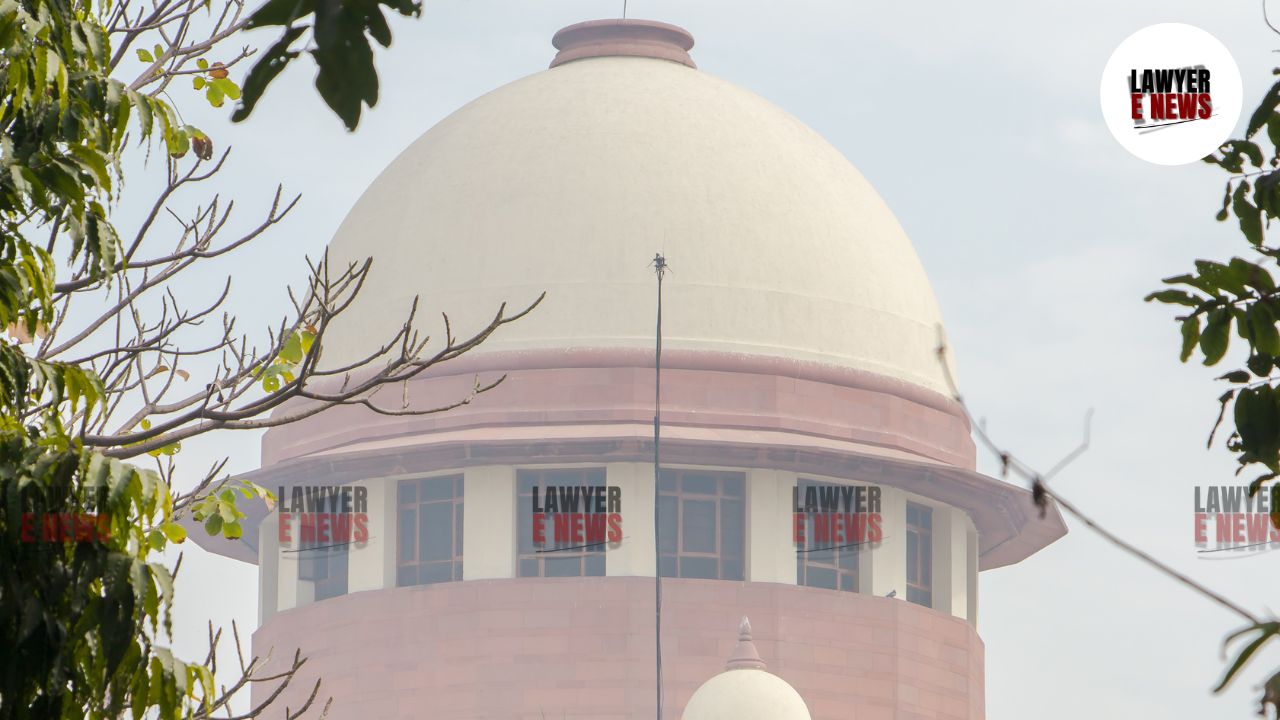-
by Admin
15 February 2026 5:35 AM



On September 27, 2024, the Supreme Court of India delivered a judgment in The Ahmednagar District Central Cooperative Bank Ltd. v. State of Maharashtra and Ors., addressing a dispute over the auction sale of immovable property belonging to Mula Sahakari Soot Girni Ltd., a cooperative society in liquidation. The appellant challenged the undervaluation and auction process of the property. The Court, while declining to interfere with the auction, invoked Article 142 to direct the respondent to pay ₹1.05 crore to the appellant to settle outstanding dues.
The case originated when Mula Sahakari Soot Girni Ltd., a cooperative society, defaulted on repaying a cash credit loan of ₹95 lakh granted by the appellant, Ahmednagar District Central Cooperative Bank Ltd. A dispute was filed before the Registrar of Cooperative Societies, resulting in an award for the bank to recover ₹1,05,98,710 with interest at 17.5% per annum. However, the society was soon placed into liquidation, and the appellant attached its immovable property for recovery.
The property was valued at ₹4.10 crore in 2012, and an auction was conducted but failed. A subsequent e-auction in 2016 culminated in the sale of the property to Agricultural Produce Market Committee Rahuri for ₹2.51 crore, sparking the appellant’s challenge, alleging undervaluation and procedural lapses.
Undervaluation of the Property: Arguing that the subsequent valuations of ₹87.33 lakh and ₹2.47 crore were illogical, given the 2012 valuation of ₹4.10 crore.
Auction Process Violations: The appellant contended that proper procedure under the Maharashtra Cooperative Societies Act, 1960 was not followed, and alleged lack of adequate public notice, with only two bidders participating.
The High Court dismissed the writ petition, stating that no mala fide intent could be proven, as the auction purchaser was a statutory body.
The Supreme Court acknowledged that the appellant had ample notice of the e-auction but delayed challenging the process until after the sale was finalized. The Court observed:
“Law is well-settled that a writ court does not encourage petitions from indolent, tardy, and lethargic litigants; the writ court comes to the aid of a litigant who approaches it with promptitude and before accrual of third-party rights.”
The Court emphasized that the appellant was aware of the auction notice in March 2016, and its failure to act promptly resulted in the finalization of the sale. Therefore, it was not open to the appellant to challenge the auction at such a late stage.
Despite this, recognizing the appellant’s financial interests and the undervaluation concerns, the Court invoked its powers under Article 142 to do complete justice. It directed respondent no. 6 to pay ₹1,05,98,710 to the appellant within three months, without interest.
The Supreme Court, while declining to annul the auction sale, provided equitable relief to the appellant by ordering a compensation of ₹1.05 crore from the auction purchaser. The Court upheld the High Court’s ruling and dismissed the appeal on procedural grounds, stressing that legal remedies must be pursued without unnecessary delay.
Date of Decision: September 27, 2024
The Ahmednagar District Central Cooperative Bank Ltd. v. State of Maharashtra and Ors.
